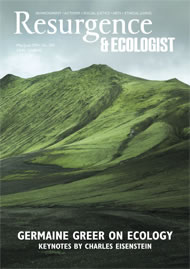In 1998 I had the honour of meeting Albert Hofmann, aged 92, at the Psychoactivity Conference in Amsterdam where, in the evening, he was dancing until 3am at the famed Melkweg Club. Nine years later, aged 101, a jury at The Daily Telegraph judged this Swiss chemist the most important living genius. Albert Hofmann discovered LSD, though he asserts that LSD found him. Sharing the Number 1 position was Tim Berners-Lee, inventor of the Internet. Though we are all aware of the profound effect the Internet has had upon our lives, few recognise the profound contribution of LSD to our technology and culture.
Mystic Chemist puts us in the picture, providing fitting tribute to a genius who searched the natural world for tools of benefit to humanity. Out of a curious rye fungus, he derived LSD and other important drugs for his employers, Sandoz. A passionate love of Nature imbues his life story, researched and written by authors who knew Hofmann well, having access to his extensive correspondence. His life, active to the end, involved a large cast of outstanding characters. The story of Albert Hofmann’s “problem child” turned “wonder child” is rich and well told.
Following 15 years of extensive trials and therapy undertaken by psychotherapists and researchers into mind sciences, LSD was made illegal in 1966. From 1962–66 it is estimated that some 40,000 psychiatric patients underwent LSD therapy, with thousands more participating voluntarily in LSD studies, reported in over 3000 scientific papers. Many saw it as a valuable new tool prompting many insights needed to bring about positive change.
Ironically, it was the CIA’s sinister “MK Ultra” research on LSD that sparked its release to the general public in 1964, when one of their subjects, Ken Kesey, jumped ship, taking the medicine cabinet contents with him. His Merry Pranksters, along with outspoken Harvard Professors Timothy Leary, Ralph Metzner and Richard Alpert, fuelled the uptake of LSD by “normal” American kids, prompting them to explore beyond the materialist mindset that defined the early Sixties. When they began questioning authority and protesting against the Vietnam War, the authorities responded, banning the drug in 1966. This halted official research and therapeutic use for 40 years, (although it failed to diminish the popularity of LSD among youth and seekers of altered states of consciousness).
The authors of Mystic Chemist comprehensively cover the multiple spheres and dimensions of Albert Hofmann’s life and the changes to our culture wrought by them. There is very little left out of a trip that takes us from the Eleusinian mysteries to the personal computer, from Aldous Huxley to Jimmy Hendrix. It is generously illustrated, with pages liberally peppered by appropriate quotes. Hofmann has been showered with praise and gratitude and when in his final years a reporter questioned him on the meaning of life he responded “to rejoice over creation. The beauty of creation is the best drug in the world”.
Though we seldom mention it, both my brother Craig and I credit LSD with having opened our minds to the importance of natural organic foods to human health and happiness, which inspired our own pioneering work in 1960s’ Britain. So how refreshing it was to find out what good company we are in from the pages of this book. It was not just Steve Jobs and Francis Crick who famously used it as a tool, but a whole host of movers and shakers, actors and artists, including many founders of green and ecological organisations and those defending human rights and the freedom of the Internet.
Today, LSD and other psychotropic drugs are once again being officially evaluated in various trials around the world. A recently completed trial in Switzerland found “no appreciable side effects or challenging incidents such as uncontrollable anxiety” (i.e. bad trips), with every patient saying they profited from the treatment.
Today, with traditional shamanistic plant medicines enjoying increasing exposure and even legalisation in the West, the remarkable medicine that Hofmann extracted from the natural world is undergoing a major reappraisal. This book will help to overcome the hysteria and misrepresentation that led to its banning nearly 50 years ago.






